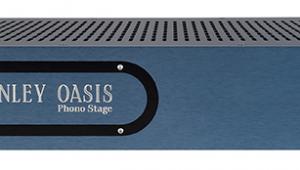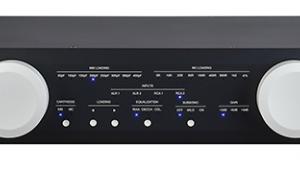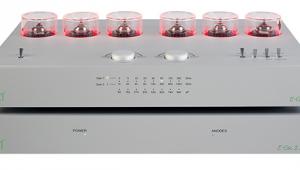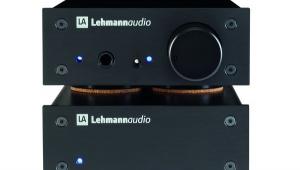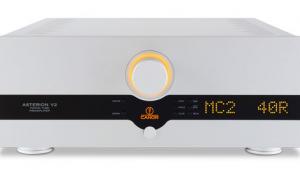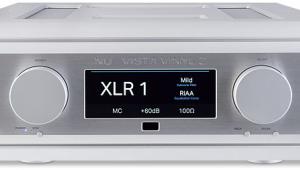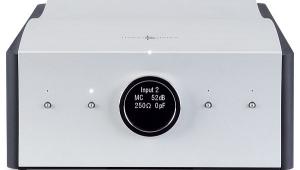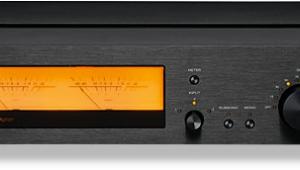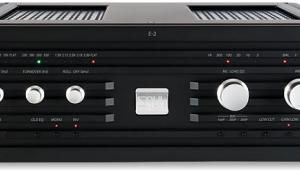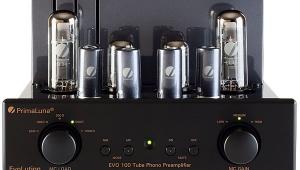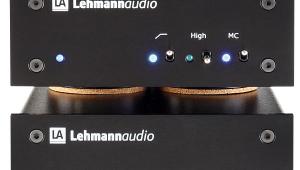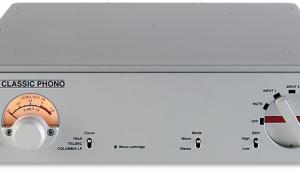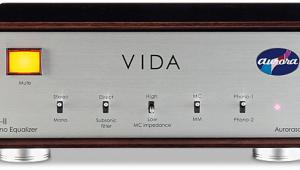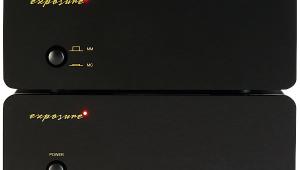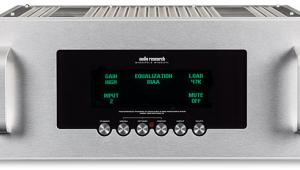Audio Research Lp1 (£1990)
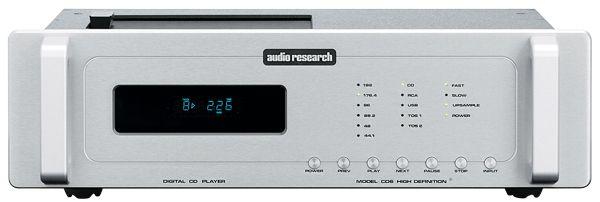
It is a hybrid designed to mix the low noise of solid-state with the musicality that comes from glowing bottles. JFETs were chosen for their combination of low noise and excellent sonic performance, the company says. They provide a decent (claimed) 47dB of gain, enough for all MM and some higher output MC phono cartridges – and then comes the 6H30 tube buffer. Audio Research fits the popular Sovtek version, said to give an operating life of some 4000 hours.
And despite being largish for a phono stage, its box is not full of air. Inside you’ll see a large custom PCB, populated by well spaced-out components, and the power supply section – complete with US-made frame transformer with multiple stages of regulation – occupying most of it. The four JFETs sit behind the tube buffer. Overall component quality is high – eg, those large Nichicon smoothing capacitors.
The design itself uses no overall feedback, and is non-inverting, with single-ended inputs and outputs. The unit feels classy, as you’d expect from ARC and it offers a sort of timeless, functional appeal.
For a product like this, the front mounted power and mute switches are all that’s needed, and only serve to emphasise its no-nonsense feel. There’s a ‘soft start’ built-in to prolong tube life, while sonically it’s at its best when it has been on for well over an hour.
Accommodating
The manufacturer says any pick-up with an output voltage of between 0.7mV and 7mV will work. We tried a range, running everything from an Ortofon 2M Red (output 5.5mV) to Lyra’s lowish 0.6mV Delos MC [see p22]. With the latter, the volume needed to go up a little bit more than was ideal, but the LP1 still worked convincingly with it, and was quiet and hum-free.
This phono stage is immediately identifiable as an Audio Research product: it’s rhythmically fast paced, dynamically punchy and never backward in coming forward, yet it doesn’t sound harsh on forward programme material.
With some classic ’70s rock in the shape of America’s ‘Ventura Highway’ [Warner] the LP1 went straight to the heart of the music, serving up a big, expansive stadium sort of sound. You really felt the melodic importance of the opening acoustic guitar motifs, and how they develop and push the song along. The strummed acoustic guitars were fast without showing any undue edge. Over this, the vocals hung ethereally, marking out one of the key traits of this phono stage: its excellent image projection and depth perspective.
Tonally, it’s a neutral affair, nowhere near as warm and ‘valvey’ as, say, Icon Audio’s all-tube PS3. The Audio Research is far crisper and brighter, shining a searching white beam on the recording, yet without blinding you.
To get the gauge of the LP1’s tonal accuracy we spun up Randy Crawford’s sumptous Secret Combination [Warner] and ‘You Might Need Somebody’. This phono stage showed its mettle by giving a wonderfully clean and open rendering of the recorded acoustic and everything within. It centred the lead vocal with great assurance, and hung the keyboards behind beautifully. Just the opening 16 bars were a treasure-trove of detail.
This ‘see-through’ midband, allied to its punchy bass and spacious, sparkling treble sets the Audio Research up to sing with pretty much any kind of music. Tchaikovsky’s 1812 Overture [DG] revealed the Berlin Philharmonic under Karajan in all its fiery majesty, the violins racing along with breathtaking speed, the brass crunching through, in front of bowed cellos, lending a menacing growl to the recorded acoustic.
Verdict
The affordable LP1 renders music in a highly believable, natural way – it is strong enough to impart the raw power of whatever music it plays, yet smooth enough to gently round off a recording’s worst excesses.
Originally published in the 2013 Yearbook

